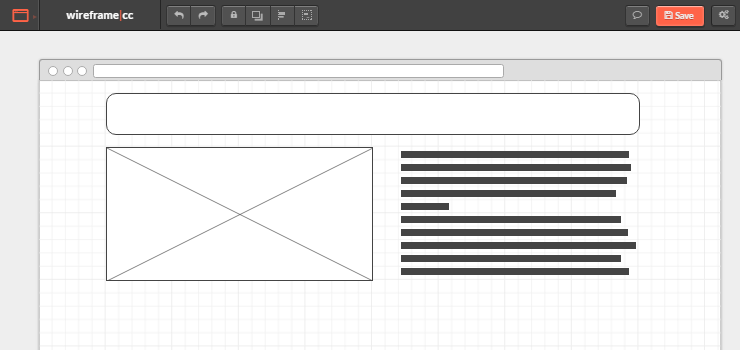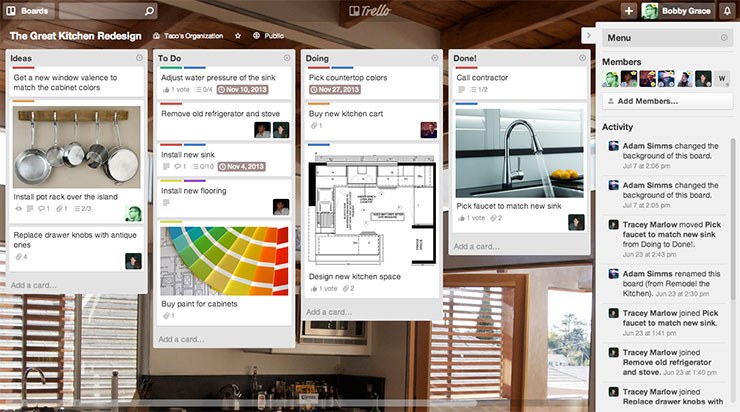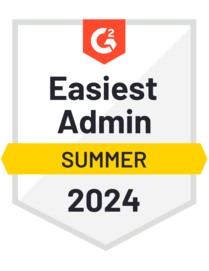Nowadays you can create almost any type of website using off-the-shelf software and tools, such as WordPress and its library of themes and plugins, sometimes a project demands customization or even a purpose built solution.
More often than not, the best way to complete such a project is to work with a developer. Hiring or partnering with a developer can open up a whole new world of possibilities. However, it’s not without pitfalls.
In this article we’ll explain how to go about interacting with developers in order to bridge the communication gap between yourself and your team. If you can learn to communicate effectively, your chances of receiving just what you want are greatly improved.
7 Tips for Communicating What You Want to Developers
1) Know What You Want

Before you even think about approaching a developer to help you with your project, it’s vital you have a clear idea of what you want. We’re not just talking about the big picture here. You need to have the finer details and small print that describe and define your project.
Be prepared to clearly document your objectives and create detailed instructions and guidelines anyone can follow to get the job done. Imagine that you were suddenly removed from the job, could your team finish the project?
Depending on the project, this documentation might include a style guide, mock-ups, and/or flowcharts. If you don’t know exactly what you want, there’s little chance even the best developer will deliver something you’re happy with. Time spent up front hammering out the details is never time wasted.
The less you assume and the more you document, the smoother the project runs.
2) Do Your Research
So you need some customized programming for your existing website. What program language will your developer need to be proficient in? If you want to hire a developer to add a members-only section to your WordPress website, what plugin should they use? These are the types of questions you’ll want to ask yourself before you approach a developer about your project.
You don’t need to have all the answers; after all, you’re hiring a developer for their expertise. However, doing a bit of research on what you hope to achieve and how the project can be completed makes it easier to find someone with the right skills and to ensure the work is completed in the way that you need.
Just remember not to go too far the other way and try to bluff your way through conversations. Be comfortable with exposing your ignorance. You’re the expert at what you do, and the developer is the expert at what they do.
3) Choose Your Tools and Methodologies

Managing a project through email may have been a viable option in the past, but times have changed. Using your inbox as a check-off list isn’t the most productive way to get things done. There are now countless powerful, free tools like Slack and Trello that make managing a project and communicating with your team much more efficient.
Before you get started, spend a bit of time deciding how your team will communicate and what, if any, methodology you’ll be following, from David Allen’s Getting Things Done (GTD) or a structured approach to project management like PRINCE2.
Don’t forget to define a communication schedule to let your developer know what to expect. Include the turnaround time you expect for communications and what format you’d like reports to be in.
4) Don’t Be Afraid to Ask Questions
If you’re not sure why your developer has done something in a certain way, ask. Again, there’s no need to try to hide your lack of knowledge, so don’t be afraid to respectfully question their decisions – within reason of course!
If your developer can’t give an adequate answer for something they’re proposing or something they’ve done, they might not be the right person for the job.
5) Stick to Your Guns
Often the reason you’re hiring a developer is because they can do something you can’t or have a higher level of expertise in the field they’re working in. However, this doesn’t mean you should let them talk you into changing your mind or adjusting your project to suit their needs.
A good developer should be trusted to use their expertise to get the job done in the way they think best, but remember, it’s your project and your vision they’re working to realize.
6) Give Useful Feedback
As mentioned, your project plan should include ongoing communication with frequent updates from your developer. This ensures your project stays on track and that you don’t find yourself with something totally different than what you initially expected.
To make the most of regular updates, be sure to provide useful feedback to your developer. If you don’t like something, let them know why.
Nothing is more frustrating than being told something is wrong and not knowing why. And demoralizing your developer is not the way to get what you want. Make sure your feedback is meaningful and actionable at all times—even when you’re happy with the work.
7) Don’t Burn Your Bridges
As you never know when you might need to work together again, it’s vital that you keep on good terms with your developer as the project is wrapping up.
Almost all software will need updating and improving over time, so make sure you keep to your end of the deal after the project is signed off – whether that’s settling the invoice on time, leaving feedback on a freelancer website, or writing a testimonial.
Final Thoughts
While you may be lucky enough to find a developer who understands your vision from the outset, most of the time that’s not the case. We hope these seven tips will help you communicate more efficiently with your developer. Clearly defining your vision, explaining your requirements up front, and providing your developer with helpful feedback are all key to ensuring the project meets your expectations
What concerns do you have about working with a developer? Have you run into problems in the past? Please share your thoughts in the comments below.
If you liked this article, be sure to follow us on Facebook, Twitter, Instagram, and LinkedIn! And don’t forget to subscribe in the box.













Add a Comment